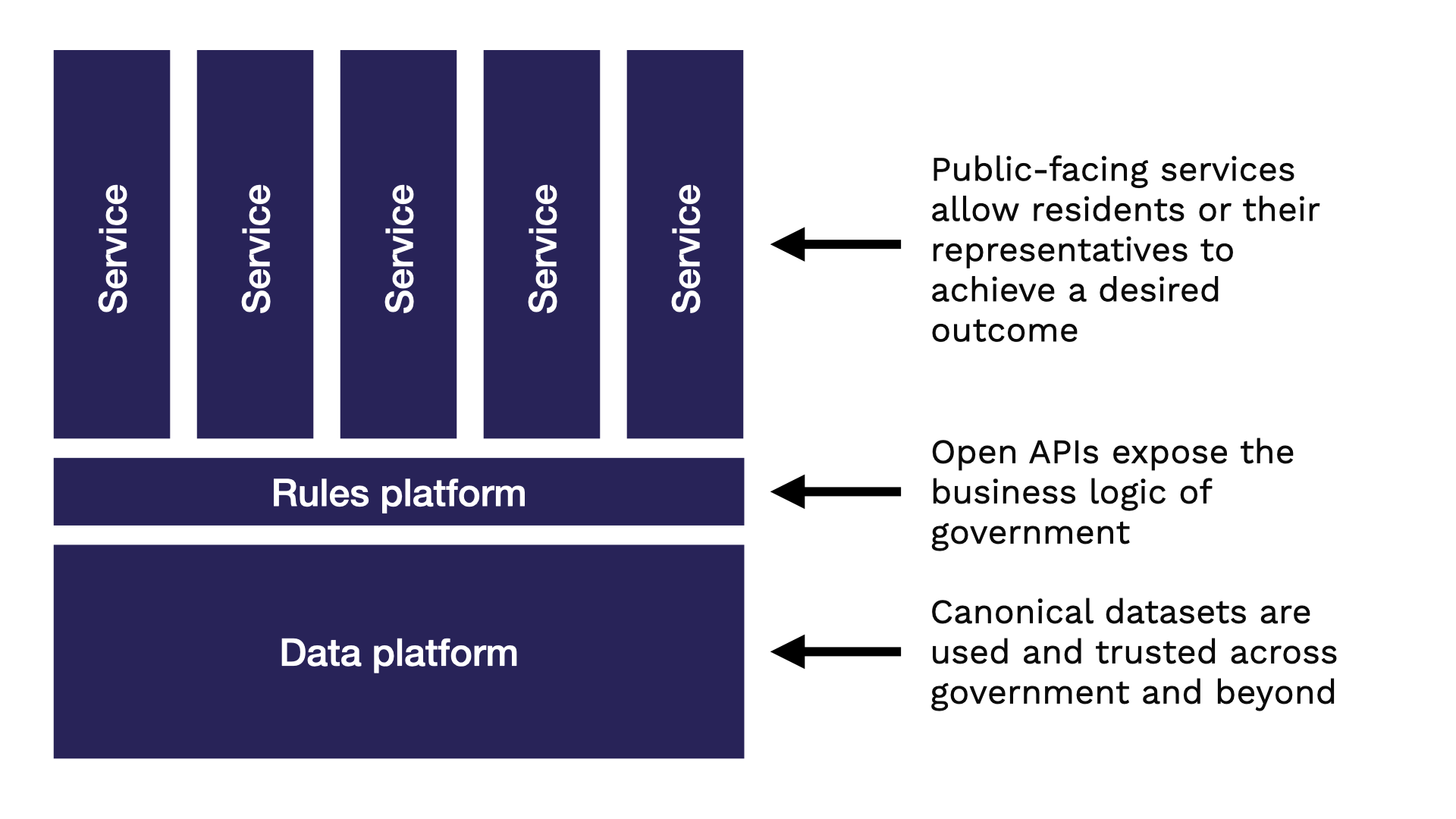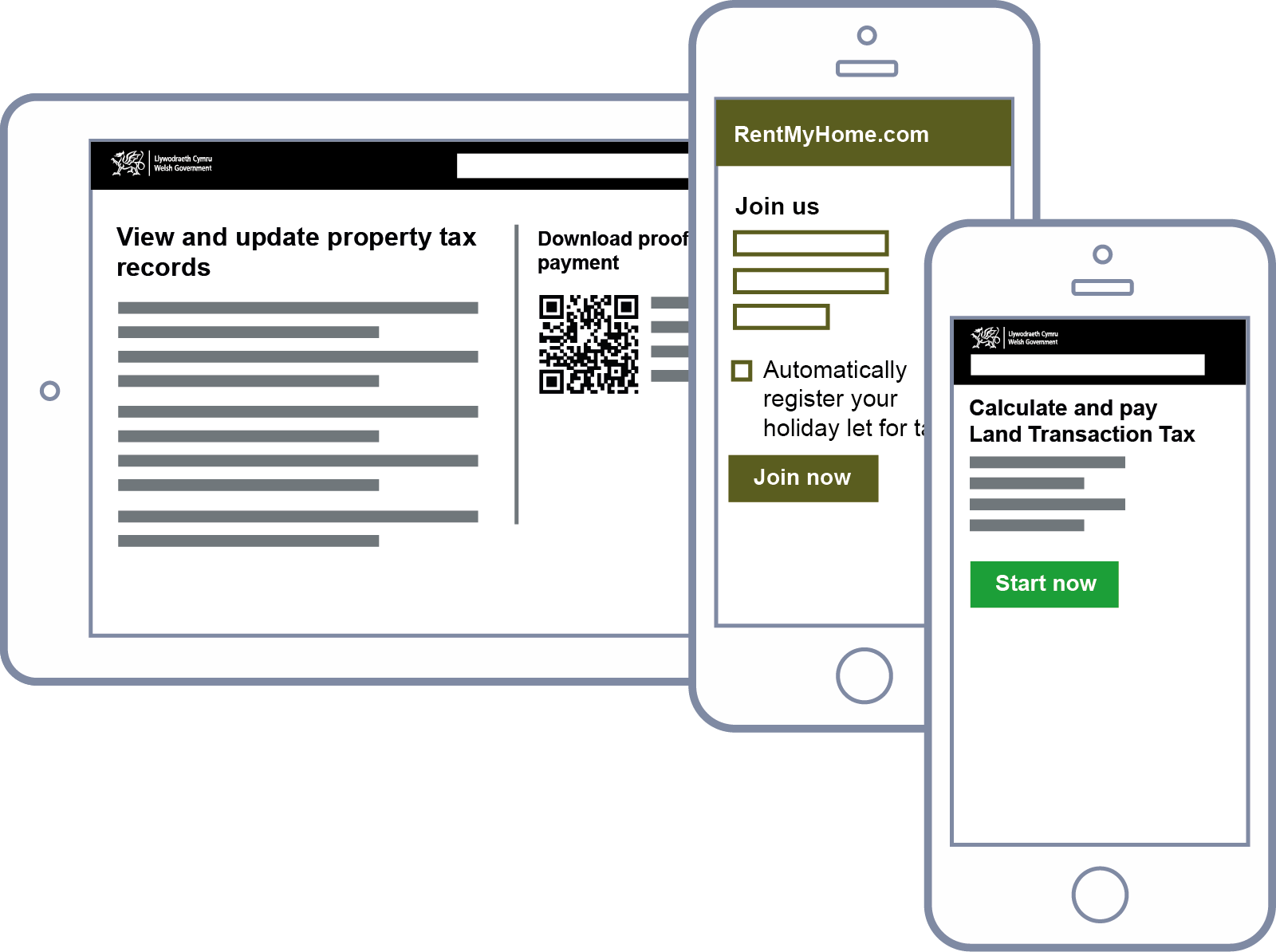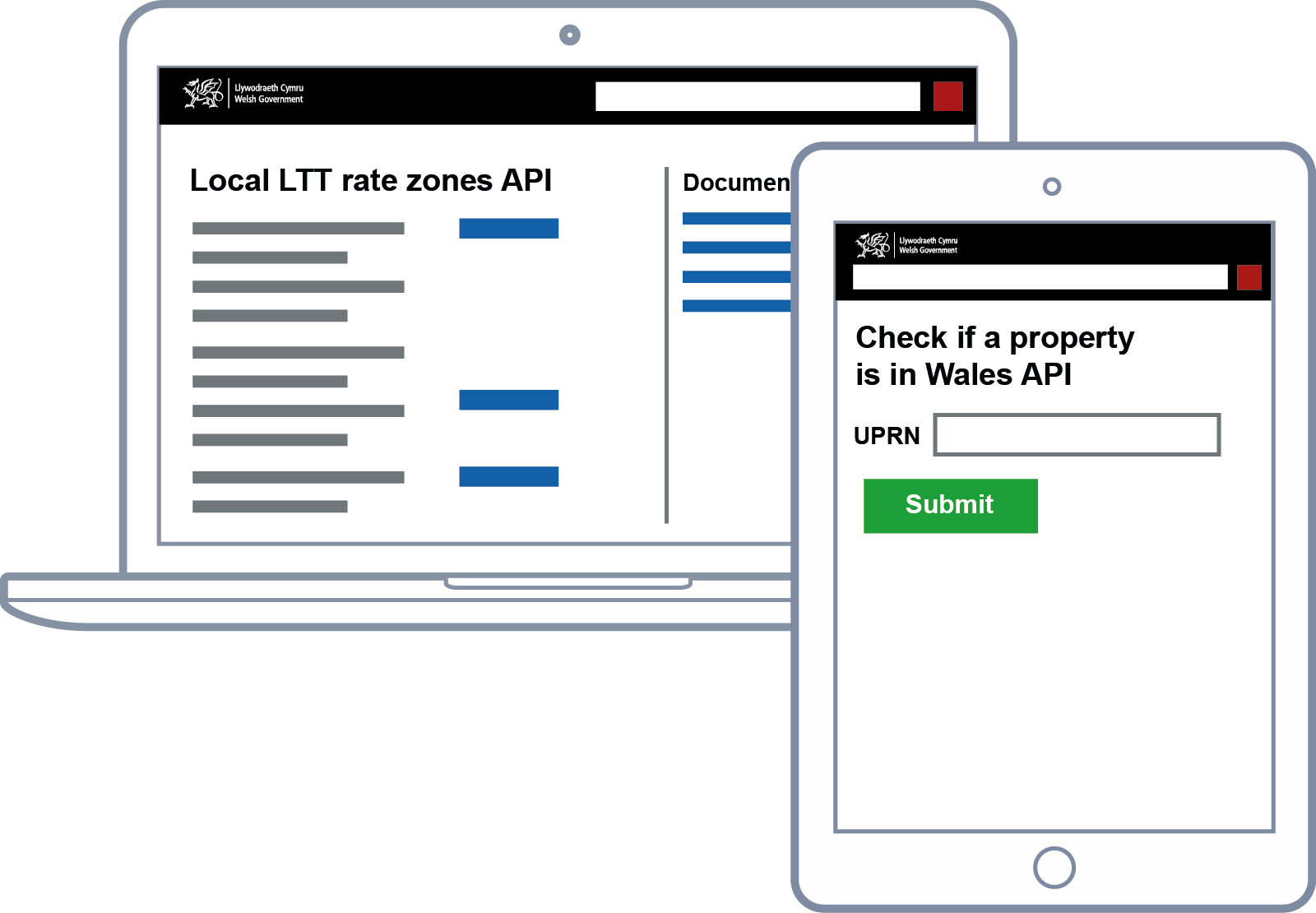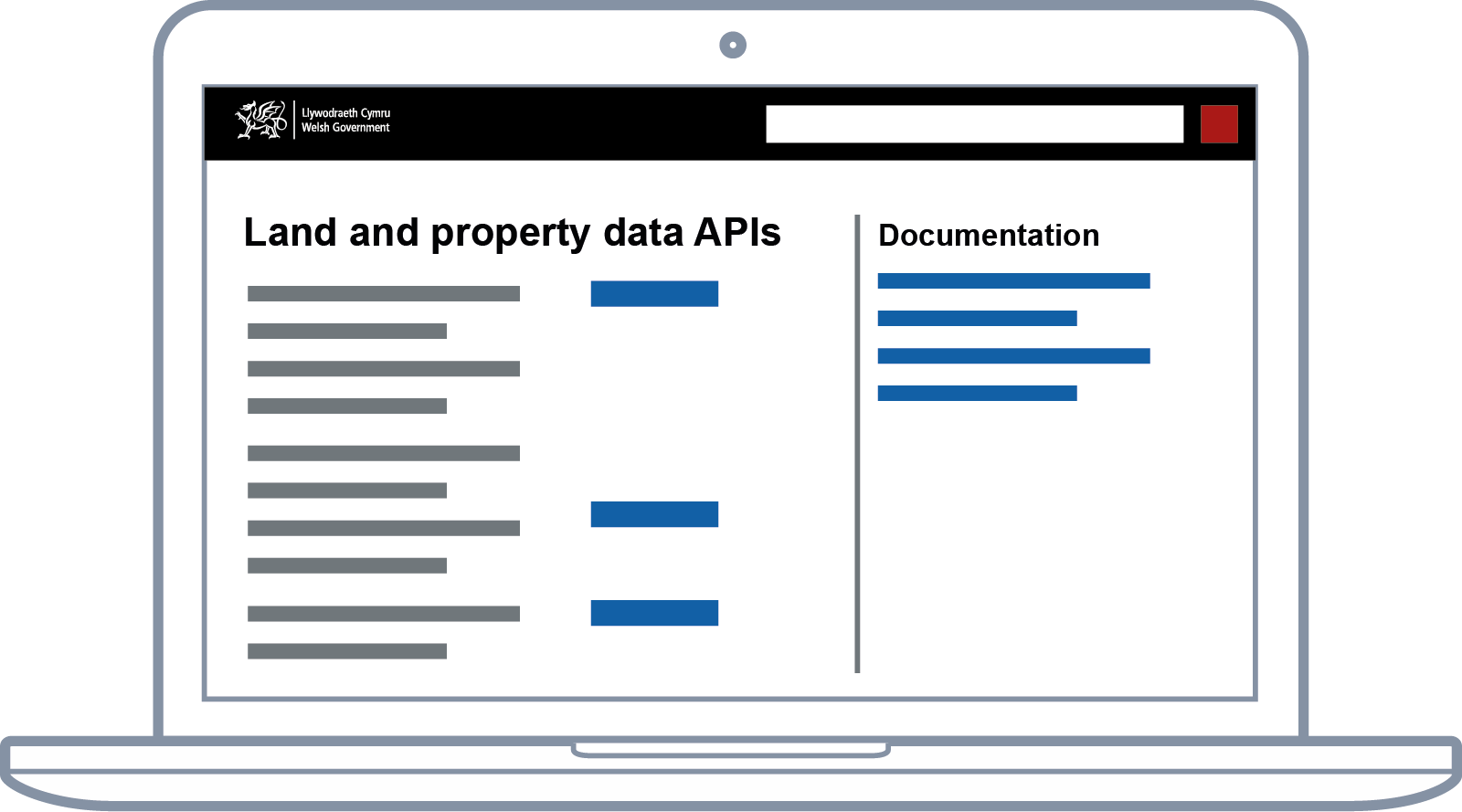What do we mean by a data platform?
Anthony Pritchard and Richard Pope, 2 March 2022
We know that, in the future, the WRA may need to support geographically varied land and property taxes, like the changes to Land Transaction Tax currently being consulted on. We also want to be able to design services that reduce administrative burden on the public and businesses. That means we need to be able to reliably identify land and property at a more granular level than we do currently today.
The aim of the land and property data proof of concept is to look at both of these things: how a data platform might support future services and the types of services that might be possible in the future. But what do we mean by a data platform?
Platforms support multiple services
In short, platforms create value by making it faster and simpler to design better services and meet policy intent. Platforms, by definition, also support multiple services.
While services allow residents and their representatives to achieve some sort of outcome (calculate and pay a tax bill, register a property as a holiday let, or view the tax history of a property), platforms expose the rules and data of government in a standard, machine readable, way that makes building services faster and easier.

Because platforms solve common problems once, they can also enable new types of service. For example, they can enable services that meet the ‘once-only principle’, where data already held by government is reused, with appropriate safeguards, to save users time. Or enable integration with specialist software, like HMRC’s Making Tax Digital platform does. We’ll talk more about services in future blog posts.

Platforms meet the needs of teams designing services
A good platform is more than just a dataset. It needs to be designed with the needs of teams designing services in mind. That means they are well documented, easy to find and stable. The data conforms to open standards and has clear provenance. Ideally a service team should be able to pick up and use a platform unaided.


Getting better through use
The final characteristic of a data platform is that they get better though use. Data is, essentially, maintained collaboratively as a wider public good.
Weeknotes
Each week we share a short update on what we’re learning, along with links to things we think are interesting or relevant.
Blog
- The technical architecture
- Policy challenges
- Every day's a school day – lessons learned from the land and property platform
- Why are inaccuracies creeping into addresses on the Land Transaction Tax return?
- How a map can paint a bigger picture
- Summarising the Proof of Concept
- What we learned about users
- How we used weeknotes
- What we've learned about working in the open
- What do we mean by a data platform?
- Welcome
Prototype
We built a number of prototypes to test our assumptions, platform capability and ideas.